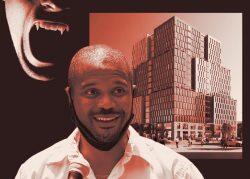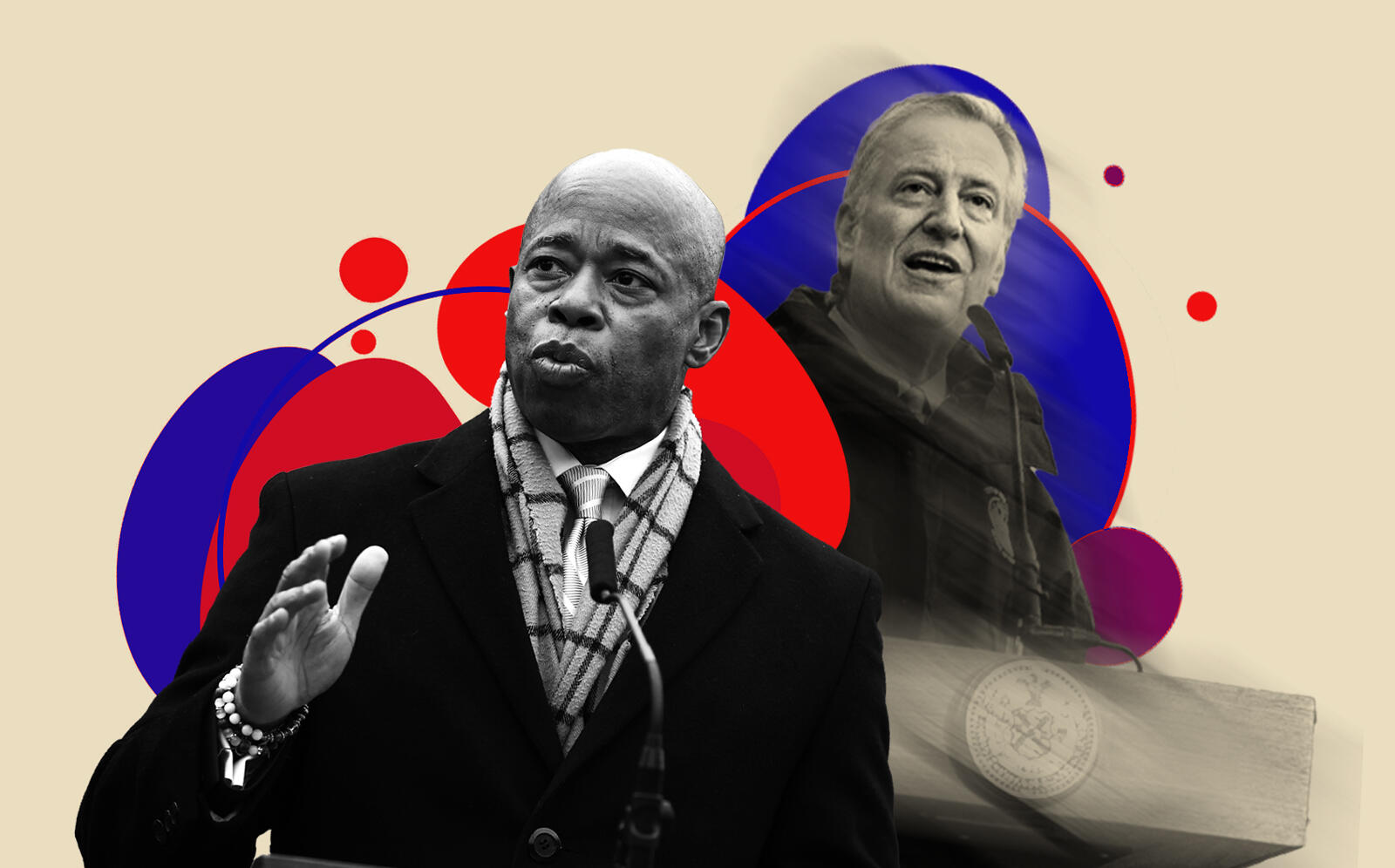New Yorkers could be forgiven if they missed some real estate news as Bill de Blasio’s mayoralty ended, which many have been pining for — for eight years, in some cases.
Euphoria over de Blasio’s exit wasn’t the only distraction. The conflicting emotions of the holiday season and soaring omicron cases clouded our consciousness.
Still, although The Real Deal didn’t cover the following three stories last week, it wasn’t because they weren’t important. We just had a few people out.
Property tax reform
Psych! No reform happened. But in the 417th and final week of his tenure, de Blasio finally proposed something in the most politically expedient way possible:
- Between Christmas and New Year’s, when virtually no one would notice
- On his way out the door, so he wouldn’t have to explain, defend or implement it
- Through an obscure commission that might never be heard from again
As for de Blasio’s proposal itself, TENNY, the industry-backed group suing to force reform, wasn’t impressed.
“Issuing recommendations that are basically the same as what the Dinkins administration released 30 years ago, two days before the end of an eight-year term, demonstrates that the mayor is complicit in a racist and regressive property tax system,” a TENNY spokesperson said. “The court must order the state and city to enact real reform.”
Unfortunately for the group, chances are slim that the Court of Appeals will do that, as the Appellate Division ruled in 2020 that even if the system stinks, it’s state legislators’ job to fix it.
If lawmakers do step in, the commission’s report might confuse more than guide them. Tasked with making the hopelessly complicated system simple and fair, the commission took more than three years to produce an unwieldy 72-page report with convoluted passages like this:
“One of the most common concerns expressed during the public hearings was the misperception that elimination of fractional assessments would mean that today’s tax rate would be applied to a property’s full market value and lead to large property tax increases. However, with relief the tax rate needed to provide current revenue would be lower, since it would be levied on a much larger tax base (full market value).”
Translation: “People think their taxes will skyrocket if we tax true market value. They won’t because we’ll lower the rate.”
No doubt you’re wondering what “fractional assessments” are. For no apparent reason, the tax system takes a property’s market value and reduces it by a fraction. No wonder the report called the system “opaque,” “arcane” and “inequitable.”
To be sure, some properties’ taxes would rise under the proposal because it had to be revenue-neutral: For the properties whose taxes are reduced in the name of fairness, other properties’ taxes must go up by the same amount. Elected officials duck this issue because many are afraid to raise anyone’s taxes.
By the way, the commission admitted in its report that it stalled for 14 months when the pandemic hit. Not until May 2021 did it hold a virtual hearing. If it cannot figure out Zoom, can we really expect it to fix the convoluted property tax system?
Another big RAD deal
On Monday we belatedly reported the details of the RAD deals announced without fanfare last week.
RAD stands for rental assistance demonstration. Sean Donovan, who astute observers noticed ran for mayor last year, launched it nine years ago under President Barack Obama. The New York City Housing Authority has been using RAD to get real estate companies to fix up and manage some public housing developments. It has been highly successful, the main drawback being that it has taken NYCHA years to roll it out.
Read more

The delay was largely because the agency insisted on getting tenants to buy in. Not literally buy in; RAD doesn’t cost residents more money. NYCHA just wanted to get their support.
This took years, in part because residents don’t trust the agency, given its horrendous track record. Some believed the new operators would jack up rents or even convert the units to private housing, both of which are impossible under RAD.
The program works by converting tenants’ rent subsidies to federal Section 8, which is reliable enough for private firms to borrow against future rent revenue to make repairs and improvements. Firms that operate efficiently can profit handsomely from the management fees.
The moral thing for the administration to do was implement RAD as quickly as possible, buy-in or no buy-in, rather than let tenants suffer in decrepit apartments. Moreover, de Blasio could have personally disabused RAD opponents of their paranoid notions. His lack of leadership was painful for program supporters to watch.
But at least de Blasio embraced RAD, a tacit admission that private firms can make repairs faster and manage properties better than the city. For all his haters’ claims that he was a socialist, de Blasio relied heavily on the real estate industry to carry out his housing goals.
Housing czar vanishes
When Alicia Glen became de Blasio’s first deputy mayor for economic development, “housing and” was added to the title. The second deputy mayor for housing and economic development was Vicki Been. Was she the last?
Mayor Eric Adams replaced housing in the title when he named Maria Torres-Springer deputy mayor for economic and workforce development. The latter means job training, which is important (and historically difficult for government) but not nearly as important as housing.
Somehow, few have noticed that Adams has no deputy mayor for housing. He has also not named a commissioner of the Department of Housing Preservation and Development to replace the departed Louise Carroll (read her exit interview with TRD).
I asked an Adams confidante if a new deputy mayor for housing is in the works. The answer: We’ll get back to you. That could mean “yes” or “it depends if we can get the person we want.”
Adams got a lot of press for picking women for all five of his deputy mayors, and it went unnoticed that none got a title that included housing. It did not go unnoticed that none is Hispanic.
If Adams wanted to fill those three gaps with one person, Rafael Cestero — who in 2009 succeeded Donovan, his boss, as HPD commissioner — would be an obvious choice.
Few people on Earth are more steeped in affordable housing than Cestero. He has spent 14 years at Enterprise Community Partners, six at HPD, one at L+M Development Partners and the past nine running the Community Preservation Corporation. That’s 30 years, mostly in senior positions, at a who’s who of Big Affordable Housing Players.
One problem is that Cestero makes about $1 million a year. Becoming deputy mayor would entail a huge pay cut and a lot more headaches. On the plus side, it’s a chance to leave a legacy, like Dan Doctoroff did.
